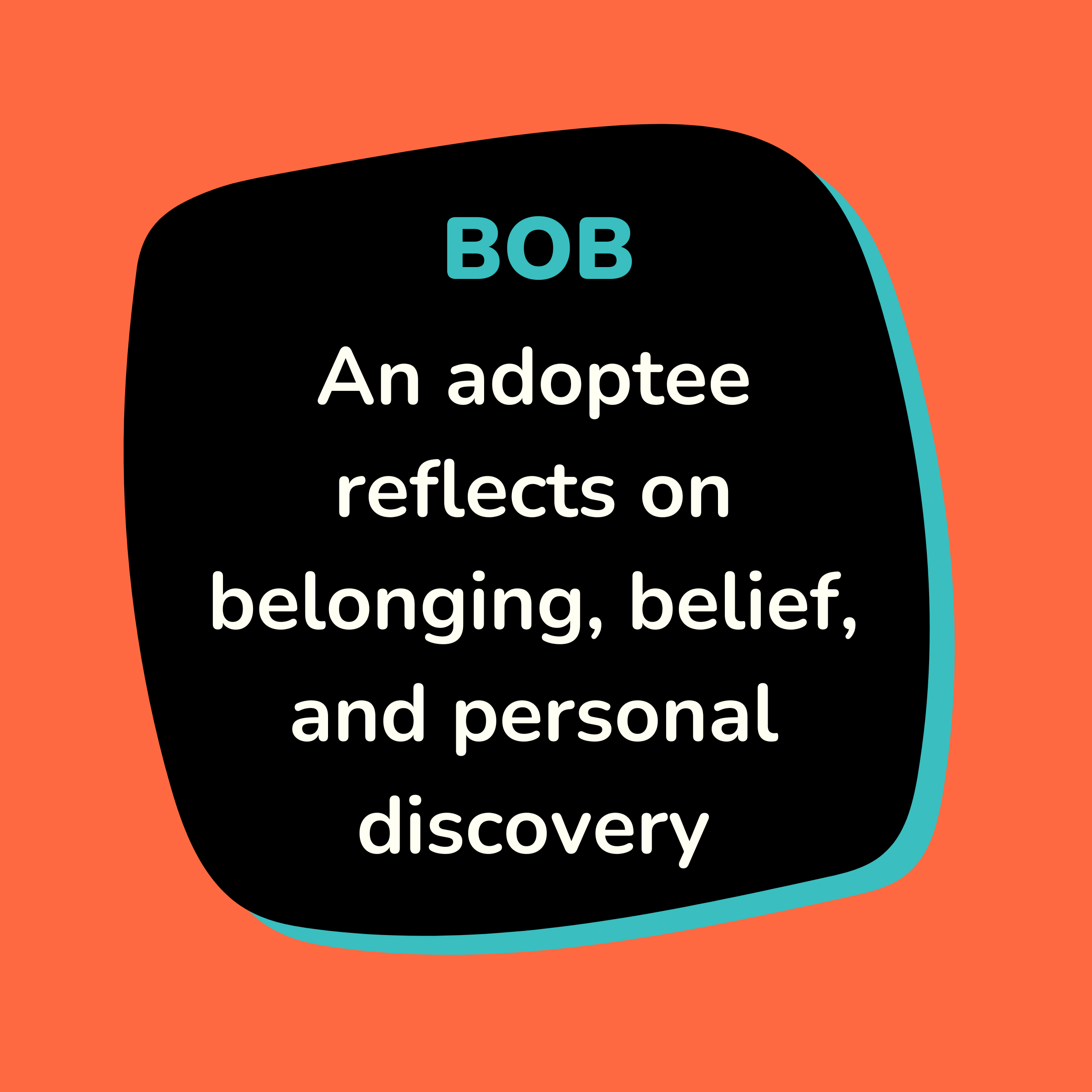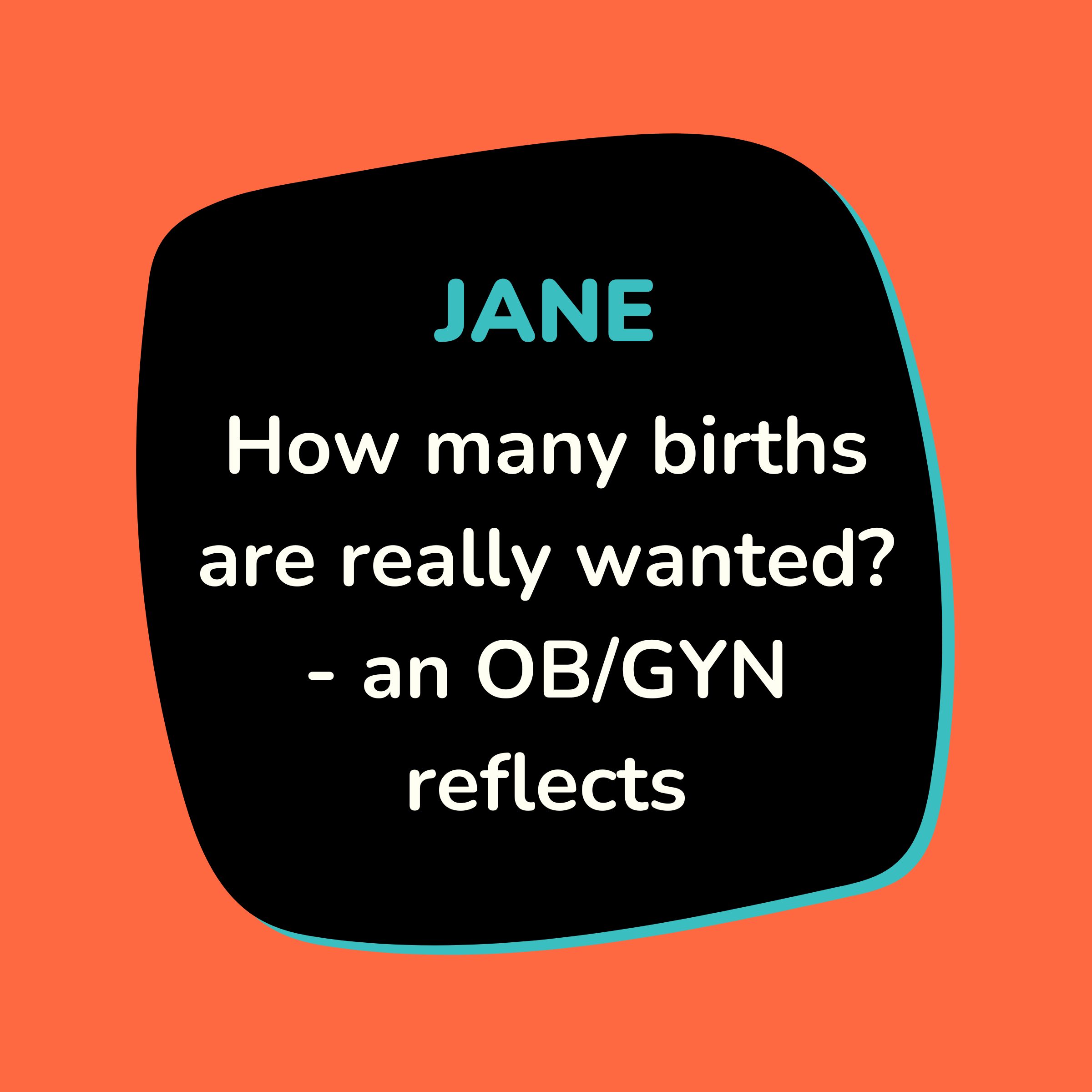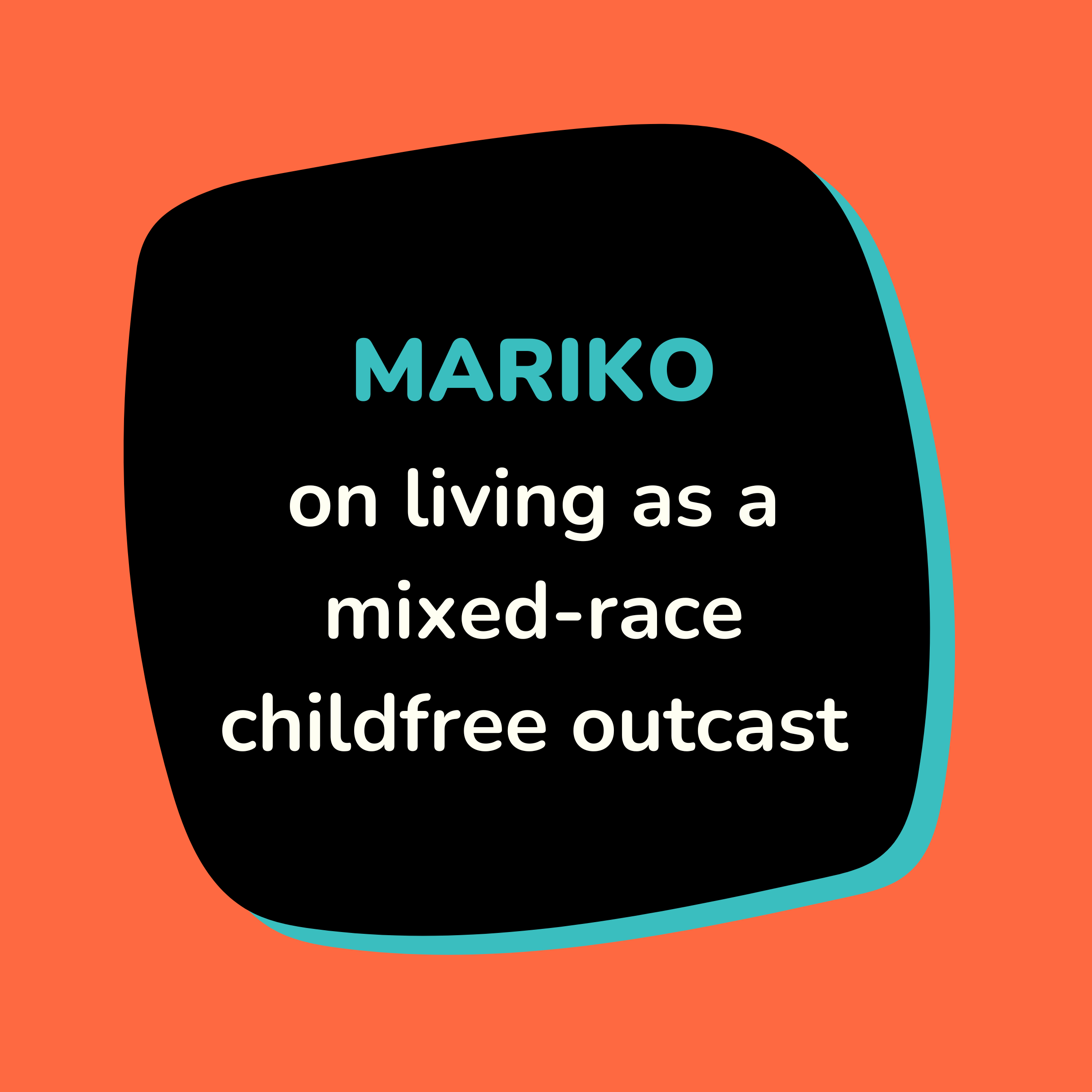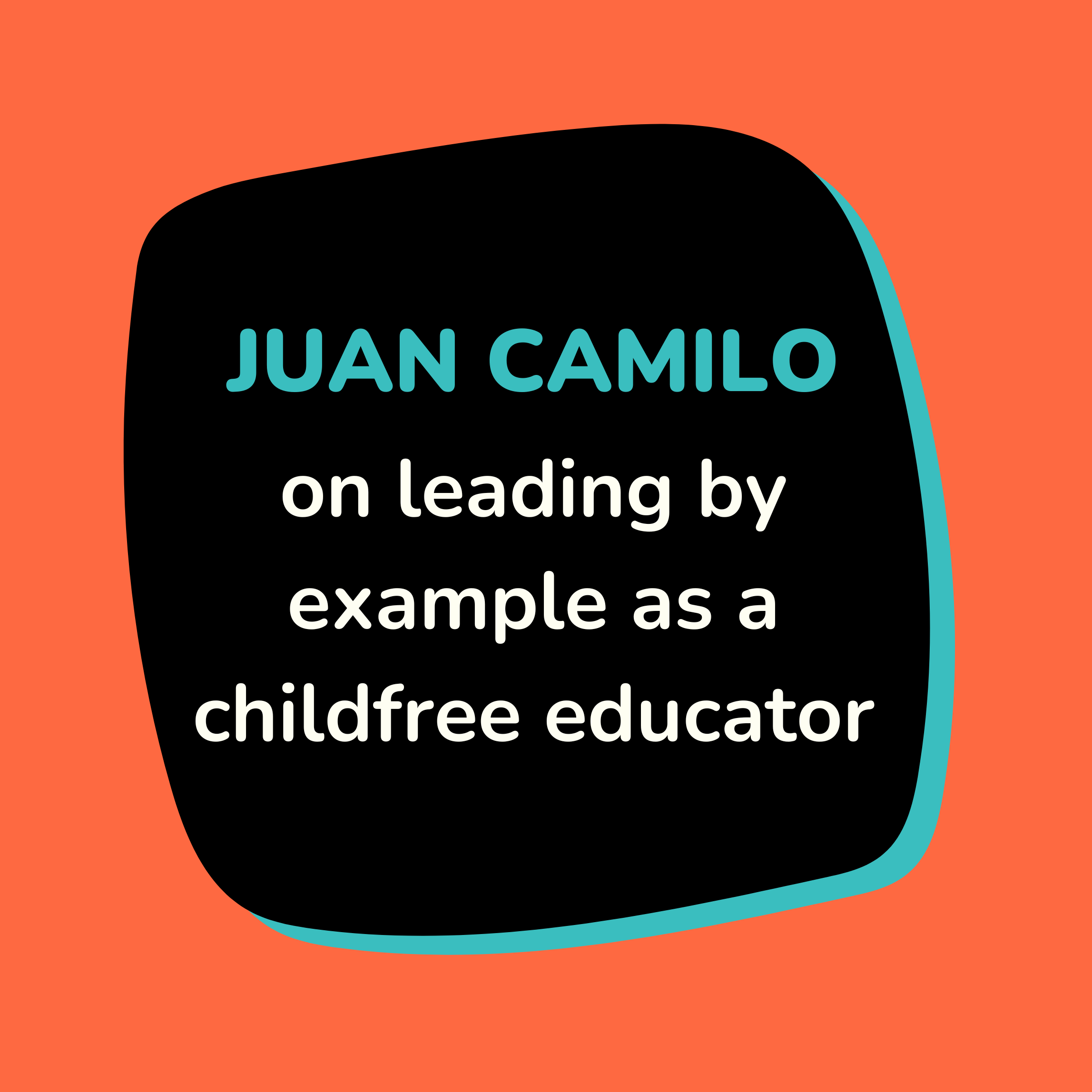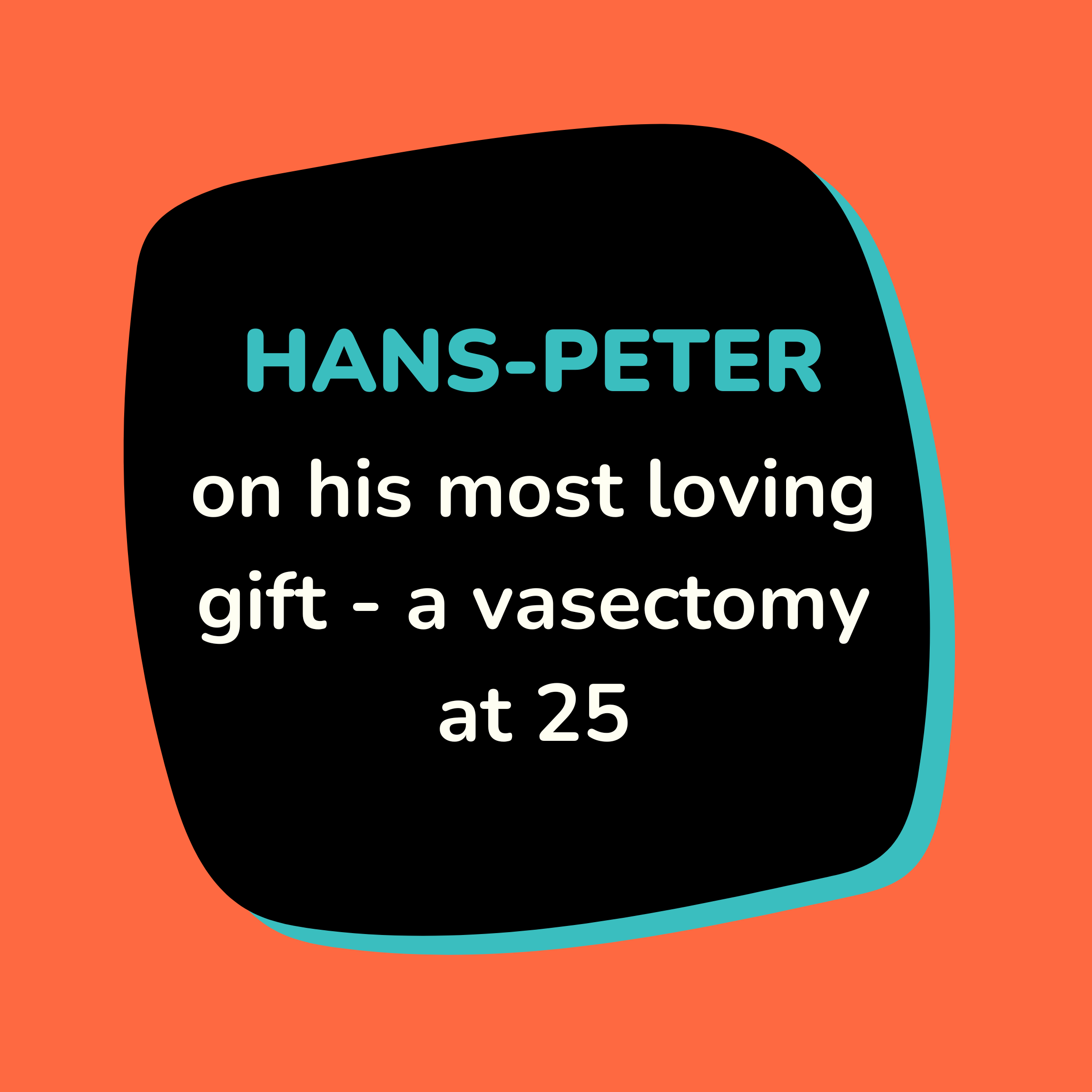Melissa - on finding fulfillment as an empty nester
Following in the footsteps of her grandparents, Melissa gave birth to four kids in rapid succession. She found raising children - who include Population Balance board chair Lukas Eddy - to be incredibly rewarding, yet wishes she had first taken the time to discover herself. As an empty nester, she is finally finding that time.
-
Melissa (00:00):
I look back as for myself, and I think, well, now what would I have done if I had not spent 20 years raising children? Who would I be now? It could be amazing. Who knows? And to be of better service to society, take away raising children, that opens up a whole new avenue for women in particular.
Nandita (00:30):
That was today's guest. Melissa. Hello everyone, and thank you for joining me on this journey. My name is Nandita Bajaj and I'm the host of Beyond Pronatalism, Finding Fulfilment With or Without Kids, an interview series in which through intimate conversations with women and men from diverse backgrounds, I explore how they are courageously and creatively navigating pronatalism - the often unspoken pressures to have children, whether from family, friends, or the culture at large. In each episode, I dive into personal stories with people who are forging unconventional pathways to fulfilment, including redefining what family means to them, whether that means being childfree or childless, having biological kids, adopting or fostering children or animals, or creating close-knit communities of friends and loved ones. Hi, Melissa, and welcome to the podcast. I'm so happy to have you here.
Melissa (01:30):
Happy to be here.
Nandita (01:31):
And I am especially excited to be interviewing you today, Melissa, because we both share a very personal connection to Lucas, who is both a friend and a colleague. Lukas is the board chair of Population Balance, and I am so happy that you as his mom have decided to come on the show. Thanks for being here.
Melissa (01:56):
Absolutely. It's my pleasure.
Nandita (01:58):
Well, Melissa, let's start with a bit of personal background about you. So tell me a little bit about yourself, where do you live, and anything that you think is relevant to this conversation.
Melissa (02:10):
So my name is Melissa Eddie, and I am 63 years old. I was born into parents that were second generation immigrants from Poland, and I was born in what they call the steel city, which was Bethlehem, Pennsylvania. So Bethlehem was known for this huge, mega steel-making facility that is still standing, but non-operational at this point. I was born into a middle class family. My father was one of four children. My mother was one of four children, hence I had four children. I went to high school, I did some college, wasn't sure what to do after that. Travelled for a year with a girlfriend just in the country. Came back and met my husband through my brother, so close family, fell in love and got married.
Nandita (03:00):
Seeing that you decided to have four children following in the footsteps of your mom and dad, tell me about how pronatalism or these pressures to have children showed up in your own life and led you into making that decision.
Melissa (03:17):
Seeing my parents with their siblings and then my cousins and these large families, it was just the norm. It is what I saw. They all lived within 20 miles of each other. They raised their families all close. They were all basically the same socioeconomic class. And I guess my expectation was just that I follow along and repeat the cycle. But I have to say that I got married at 23 and started having children at 25, and I honestly didn't know myself very well. I didn't really set goals for myself yet. I didn't know who I was yet. I was in nursing school. I knew that much. But aside from that, no, I wasn't one who grew up thinking, oh, I can't wait to have my four children and have this big family. My family struggled growing up. Money was tight. My cousins the same. We were all okay, but it was not easy. It wasn't an easy time to be a child. So it wasn't that I looked at it and said, oh, I can't wait to start this family. Life's going to be great. I didn't have that. I think it was more just the expectation that that's just what you did. And so I just followed suit.
Nandita (04:29):
And as you were beginning to have children, were there congratulatory tones that encouraged you to continue on that path? Or was it that you were enjoying the role of being a mother, that you decided to have more children?
Melissa (04:46):
It was a little bit of both. I distinctly remember both my mother and mother-in-law shortly after getting married, even before getting married, asking when are the children coming? When are the children coming? So I feel like I was on an automatic walkway, like the ones in the airport that you get on and you just follow along and there goes your life, the expectation role. And so I started having the children, and that's where it becomes difficult because the reward of having a child is immense. The beautiful miracle of having a child, of having a baby is just unbelievable. But then it changes as that child grows. You don't know is the child going to have problems, mental, physical, things like that. But to go back to your question, I definitely was rewarded personally. And then also by my parents and my husband's parents. They were all quite pleased and happy. They offered to help out financially, physically. They came and helped us when the children were sick, when we were overwhelmed. So we were supported. We were supported in many ways.
Nandita (05:49):
That's really wonderful to hear because even if people make a decision to have children without having thought through all of the different options, we do that with a lot of other decisions in our lives too. And for some people it ends up working out really well, like it did with you, where you actually did enjoy that role. And for other people it doesn't. And in this case, what you said earlier is you didn't even know who you were. You hadn't set any goals for yourself. At what point did you start thinking about your own needs, aside from being a mother?
Melissa (06:32):
Yeah. Well, that's a million dollar question. So we had four children. LuKas was number two. We had four children in five years. It happened awful quick, and it was bedlam, but it was beautiful. And it wasn't until our fourth child, our only daughter, Samantha, when she went off to college, then I had time all of a sudden to explore who I was as a woman, who I was as a mother, who I was as a person. I had time to explore my relationships with my husband, my friends, or my lack of friends, because having children is all-consuming on so many levels. So it wasn't until she was off to college, so 20 years, and then you have the time. You have the space to start thinking about these things. You could say you do learn who you are along the way in that respect and who you are as a person comes out as well or how you deal with the frustrations and the difficulties, and mostly difficulties, I have to say with having four children.
(07:31):
It was tough. So you do learn. I did learn much about myself through that, but only through that avenue would I say as a mother did I learn about myself. When you take away the children, and it's just myself, there's many other parts of ourselves to discover, which I'm discovering now. So it was difficult. It is difficult to raise children, there is no question. Even with all the help we had, four grandparents helping financially, physically, in many ways. It takes a village. The one point that I would like to say is that I think those ages in your twenties, it's so important to take that pause to discover where you fit in, how strong is your need to have children or not. Take that time for yourself to explore that. And I don't think I did that. I know I didn't do that. Because if you're lucky enough to meet someone that you do fall in love with and get married, it's so romanticized. And our culture makes it that way through all the media, through other people that you may think have the most beautiful life and married and children, it's so romanticized. It's over romanticized. And I believe I truly was part of that picturing, oh, life is great. We're going to have children. I love my husband. He loves me. What could go wrong? And I think that's a result of our society.
Nandita (08:51):
Sure. And in your case, it ended up working out nicely. You did enjoy that, and now you are having the time to explore your own interests and hobbies. So what has the journey of self-exploration been like?
Melissa (09:07):
Yeah, it's been wonderful. I mean, I've discovered many hobbies. Yoga is one of my favorites. And studying in depth yoga sutras and spirituality, marvelous. But environmental is also very big and near to me and dear to me. And that's where I say, having such a large family, I have left such a carbon footprint, and I feel like I've taken more than my share of this Earth's resources. And I think looking ahead for people having children that has to be such a monumental concern. We have to look at that and say, for each person that comes into this world, that person needs a home and needs the resources, and should they build their family? The resources just continue to grow and mount. So I look back on it now, I've gotten involved in our township. I'm on the board for the environmental committee, and I'm doing some good work in our township, which is really rewarding. But I have four children. It's like, oh, there's the one. She's got all the kids. Well, I didn't know then what I know now. That's what I say. I didn't know then what I know now. And things are different now. We didn't know half of what we know now about climate and resources and things like that.
Nandita (10:20):
That's definitely true. Yes. And I think even for those of us who do have that innate desire to become parents, it's so helpful to have all that information available to us so that we can find a balance between meeting our own needs and desires and also thinking responsibly. I think it's because having children has been siloed into such a personal decision that you don't even think of other concerns outside of yourself when you have children. You just think, well, it's my right or it's my desire. And so I know through Lukas, for example, Lukas's on the board of directors of our organization. Our organization is very much about reducing human impact on Earth. And he's a really dedicated activist. And I wonder how much of his activism came from your own interest and environmental values?
Melissa (11:22):
Well, for all four of our children, two of them are married, two are not, and none of them have children. I will never ask them for children. I will never put that expectation upon them. And they're free to know that their life that they choose is their own life. It is not mine. It's theirs, so they're all in different places, and they've all gone down different avenues, and they're all doing okay. But when they were small, it was very important to my husband and I to have them outside. I grew up doing a lot of outdoor activities like camping and hiking and just outdoors all the time. And we did the same for our children. And that has had a monumental impact on all of them. They're all environmentally conscious adults. They're all environmentally aware of our resources and lack of resources and what's happening to the planet. And as I've explored myself more, I've come to realize how interconnected everything is, the web of life between people and animals and the Earth and all our beautiful resources that we have, and how one movement in one area impacts all areas. And I'm sure my children all know that and could tell you that from what we did with them as children and what we do now still. So I'm grateful for that.
Nandita (12:33):
I'm sure they are grateful for that too. And so their experience of having you as a mother and having so much freedom to choose their own life paths sounds quite different from the experience that you had where you may not have had the wherewithal to even think about these things. How would you contrast the social milieu at the time when you were growing up around this decision versus the experiences that your kids are having?
Melissa (13:10):
That's a very good question. It would probably be the finances. Financially, they couldn't have sent me off to do, say an outward bound experience or one of the outdoor adventure programmes that most of my children have done. So it probably comes down to being financially capable of offering those things to your children. And equally important would be allowing them the space to go do something like that, whereas in my generation, it was finish school, go to college and get that job and get started right away. Mostly the husband, women were housewives, raising children. But now we encourage our children to explore whatever it is that they think they would like to explore. Take that time. You don't get to be 25 again, so if you're not sure at 25 what you want to do, go explore and figure that out. So I think the combination of both of those encouraging and offering that to an adult child and being financially stable enough to do so, which is a privilege, really. Now I think about it as I'm saying that that's a true privilege. That's a gift to be able to give a child.
Nandita (14:13):
Definitely. And isn't it a gift that you'd want every child to be able to have? Because you still see in so many different family structures and communities and cultures that there's this immense pressure for children to become something that their parents want them to become. And I think that becomes an extremely difficult part of development for young people. And I love that you've practiced that with all of your children and that they've all taken these different pathways and that they all have the freedom to choose whether or not to have children.
Melissa (14:52):
I agree. I look back as for myself, and I think, well, now what would I have done if I had not spent 20 years raising children? Who would I be now? It could be amazing. Who knows? And to contribute to society, to be of better service to society, take away raising children, that opens up a whole new avenue for women in particular. And I think of the possibilities that women can have now and how much further they could go by taking away having children. As I said, though, it's not for everybody. If you have this strong desire, fine, that's wonderful. But I don't believe everybody has that strong desire to have children or has the capability to offer the freedom. It takes a lot of thought beforehand, before you make the decision. I worked part-time as a nurse, but that's about all I could do. Was too busy of a time.
(15:46):
They were too close in age. But I did always want to go to school to be a doctor. That was my original thought, was to go to school to be a doctor. And now here I am, my husband and I, and we actually foster dogs now on the weekends. So we got involved with an animal support mission, and they raise dogs and give them to first responders and veterans. And so we foster the dogs on the weekends and the dogs go to school during the week. So we found our niche that way. But yeah, it's interesting. And then as they say in Buddhist philosophy, well, your life goes where your life is supposed to go. And so I trust in that, and I'm perfectly happy with that. And the path is before me. I'm just following.
Nandita (16:24):
I really love that because I think in culture, there are so many binary messages around, well, if you don't do this, you'll regret this. If you do this, you'll regret this. And we choose a path which inevitably closes off other paths, right? It doesn't matter which path you take. There's always going to be a few things that you will never get to experience, and that's true for everyone. So I think this aspect of, well, there's only one true path to fulfilment or love. It's very harmful.
Melissa (16:58):
Now that I'm 63 and just retired, many of my friends or my colleagues are also just retiring, and they all have grandkids. So I just went to a luncheon and seven out of 10 of us had grandchildren. Three of us did not. So now there's all this pressure that they said, they're like, oh, Melissa, you got to get some grandkids. I'm like, I'm having a good time doing what I'm doing, but now there's this pressure. Why don't you have grandkids? Well, what are your kids doing? Why aren't they having children? And that is a curve ball I never saw coming.
Nandita (17:34):
Right. It's like your second act of pronatalism.
Melissa (17:42):
That's a good way to put it. And still navigating.
Nandita (17:43):
Yeah. How are you navigating that? What do you say to them?
Melissa (17:49):
I just tell 'em what I'm busy doing and how happy I am doing it, and that now this time is all for me, and I'm enjoying that. They say, oh, but you don't know. Wait till you see that grandkids are a part of you. You'll experience that. Well, okay, if it happens, it happens, but it's not mine to tell.
Nandita (18:06):
Right.
Melissa (18:07):
And the other part of it is I worked in long-term care as a nurse, so I took care of people in their eighties and their nineties, and they lived, it was a beautiful facility that I worked in, and they were wealthy. The residents were wealthy, and their families were wealthy. Now, those residents could have lived with their children because their children were wealthy enough that they could have lived with their children, but they choose not to. So in this day and age, in the 21st century, to be saying that, oh, I need grandchildren because they need to take care of me when I get older is totally obsolete. And I know that it's still being said, but that's not the reality anymore. Maybe in some cases it is, but I don't know of anyone that's living that reality. I don't see that anywhere. It's not that we need those grandchildren to take care of us as we age, because that's not our society any longer.
Nandita (18:55):
Right. That is such an helpful insight too, from your own personal experience. And so where would you say you're at now with your life?
Melissa (19:06):
I'm in a happy place. I have the freedom. I have the physicality to do what makes me happy. I can be of service and spiritually I grow. And so I just feel I'm in a lovely place and I'm so grateful.
Nandita (19:18):
Well, that sounds amazing. Amazing.
Melissa (19:21):
Thank you so much for having me. This has meant a lot to me.
Nandita (19:24):
Thank you so much for joining me, Melissa. It has been really wonderful hearing such a unique story. That's all for today's episode. Thank you so much for listening. What did you think of this episode? Do you have your own story you'd like to share? Check out the show notes to see how you can get in touch with me. Whether you'd like to share feedback about the show or a particular episode, or whether you'd like to join me on the show to share your own story, I'd love to hear from you. Thank you so much again for joining me today as we collectively discover and celebrate the many different pathways to fulfilment beyond pronatalism. Beyond Pronatalism is brought to you by Population Balance, the only nonprofit organization advancing ecological and reproductive justice by confronting pronatalism. This podcast is produced and hosted by me, Nandita Bajaj, with the support of my production team: Josh Wild, Elisabeth Strunk, Alan Ware, and Kirsten Stade.
More like this
Share your story!
Would you like to be on the show to share your own story? We’d love to hear from you!
Join our mailing list
Subscribe to our newsletter to be the first to know when a new episode is launched.



